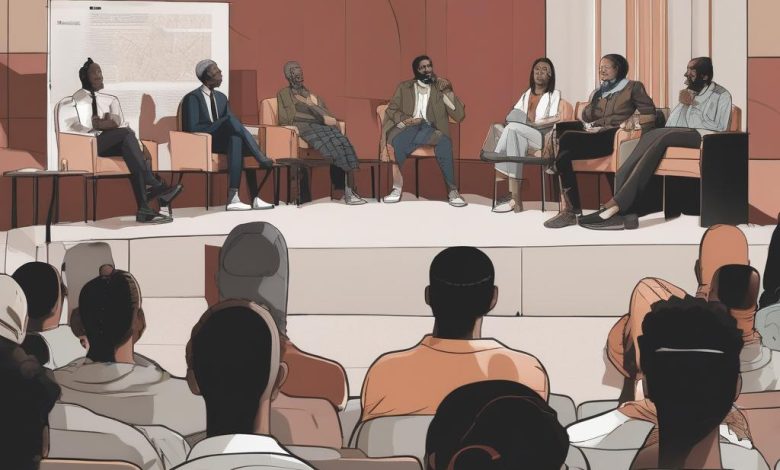Migrant Legal Rights: Protections You Should Know

Migrant Legal Rights: Protections You Should Know
Migrants often face many challenges when they move to a new country. It’s key to know the legal rights and protections they have. This article will cover the main legal safeguards that help migrants settle in the United States smoothly.
Legal rights for migrants cover many areas. These include equal protection under the law and being free from discrimination. Knowing these rights helps migrants stand up for themselves and make smart choices in the immigration process.
Key Takeaways
- Migrants have the right to equal protection under the law, regardless of their immigration status.
- Discrimination based on race, ethnicity, national origin, or immigration status is prohibited.
- Migrants have access to essential services, such as healthcare and education, regardless of their immigration status.
- Navigating the immigration system can be complex, but there are legal resources and representation available to assist migrants.
- Understanding your legal rights can empower you to advocate for yourself and ensure you receive the support and protections you are entitled to.
Understanding the Fundamental Legal Rights of Migrants
Migrants in the United States face many challenges. It’s key to know the legal rights that protect them. These rights make sure they are treated fairly and protected from bias.
Equal Protection Under the Law
The 14th Amendment of the U.S. Constitution says everyone, including migrants, gets equal protection. This means migrants can use public services like schools, hospitals, and social programs just like U.S. citizens. They also can’t be denied jobs or treated unfairly at work because of their immigration status.
Freedom from Discrimination
Many laws protect migrants from being treated unfairly. The Civil Rights Act of 1964 stops discrimination based on where someone is from. The Immigration and Nationality Act (INA) also says employers can’t discriminate against people because of their citizenship or immigration status.
These laws help migrants stand up for their rights and fight against unfair treatment. Knowing these rights is important for migrants to live well in the United States and to speak up for themselves.
| Key Legal Protections for Migrants | Description |
| Equal Protection Under the Law | Migrants have the same access to public services and cannot be denied employment opportunities or subjected to unfair treatment in the workplace based on their immigration status. |
| Freedom from Discrimination | Migrants are protected from discrimination based on national origin or citizenship/immigration status under federal and state laws, such as the Civil Rights Act of 1964 and the Immigration and Nationality Act (INA). |
Knowing these basic legal rights helps migrants deal with the immigration system better. It lets them stand up for their rights and be treated with respect and dignity.
Legal Rights and Protections for Migrants
Migrants moving to the United States need to know their legal rights and protections. These laws help them navigate the complex immigration system. They also let migrants get the services they need and blend into their new communities.
Accessing Healthcare
Migrants have the right to healthcare services. The Emergency Medical Treatment and Active Labor Act (EMTALA) makes sure they can get emergency care, no matter their immigration status. Many states also offer Medicaid or other health programs for migrants.
Educational Opportunities
Migrant kids can go to public schools in the U.S., even if they’re not citizens. This right comes from the Plyler v. Doe Supreme Court case. It means all kids, including migrants, can get a good education.
Employment Rights
Migrants have legal protections at work, no matter their immigration status. The Immigration and Nationality Act (INA) stops employers from discriminating against them. Migrants have the right to fair pay, safe work conditions, and can join unions.
| Legal Right | Protections Covered |
| Healthcare | Emergency medical care, Medicaid coverage, and state-specific health insurance programs |
| Education | Access to public education for migrant children, regardless of immigration status |
| Employment | Fair wages, safe working conditions, and the right to organize and collectively bargain |
Knowing these legal rights helps migrants fully join American society. It also lets them get the resources they need to succeed.
Navigating the Immigration System
Getting through the immigration system can feel overwhelming for many. But, knowing about legal help and resources can ease the way. This part will guide you on how to find the support you need to get through the immigration process.
Legal Representation and Resources
It’s key to get legal help for immigration matters. A skilled immigration lawyer can explain your rights, duties, and how to move forward. They’re great at helping with visa applications, deportation cases, and legal issues.
There are also groups and services ready to help migrants during their immigration journey. They offer info, education, and support to help you face challenges and stand up for your rights.
- Non-profit groups focused on immigration law that offer low-cost or free legal advice
- Community groups and advocates that provide guidance, support, and connections
- Government agencies and programs with info and help on immigration topics
- Online tools like legal databases, forums, and websites
Using these legal and support options can boost your confidence and success in the immigration process. Getting expert advice and using available services can greatly improve your immigration case’s outcome.
| Resource | Description | Contact Information |
| American Immigration Lawyers Association (AILA) | A group of immigration lawyers and professors offering legal help and resources. | Website: www.aila.org
Phone: 1-800-954-0254 |
| Immigrant Legal Resource Center (ILRC) | A non-profit giving legal support, training, and advocacy for migrants and their communities. | Website: www.ilrc.org
Phone: 415-255-9499 |
| U.S. Citizenship and Immigration Services (USCIS) | A government agency that runs the immigration system and offers info and resources for migrants. | Website: www.uscis.gov
Phone: 1-800-375-5283 |
“Navigating the immigration system can be complex and tough, but with the right legal help and resources, migrants can beat the odds and reach their goals.”
Conclusion
This article has looked into the key migrant legal rights and protections in the United States. It showed that migrants have rights like equal protection and freedom from bias. These rights help them get the resources and chances they should have.
We also talked about how to move through the immigration process and find legal help and support. With this info, migrants can stand up for their rights and make a good life in their new place.
This detailed look at migrant legal rights and migrant protections gives readers the info and tools to fight for their rights. It helps them get the support they need.
FAQ
What are the fundamental legal rights of migrants in the United States?
Migrants in the U.S. have the right to equal protection under the law. They are also protected from discrimination, no matter their immigration status. They can access public services, look for jobs, and won’t face unfair treatment because of where they come from or their immigration status.
How can migrants access healthcare and education services?
Migrants, even those without papers, can get the healthcare and education they need. They can sign their kids up for public schools and get emergency medical care. This is true no matter their immigration status.
What legal resources are available to help migrants navigate the immigration system?
Migrants can find legal help and support to guide them through the immigration process. They can look for free legal advice, groups that support immigration, and local resources for information and help.
Can migrants be denied employment opportunities due to their immigration status?
No, migrants in the U.S. have the right to look for and get jobs. Employers can’t discriminate against them because of their immigration status. This means undocumented migrants also have the right to work and can’t be stopped from getting a job just because of their immigration status.
What protections are in place for migrants against discrimination?
Migrants are shielded by laws against discrimination at the federal and state levels. These laws stop discrimination based on things like where someone is from, their race, religion, sex, and more. This means they’re protected from unfair treatment in places like work, home, and when using public services.




